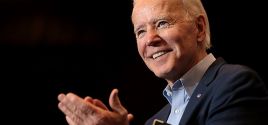House Overwhelmingly Passes "Cyber Security" BillKurt NimmoInfowars Feb. 08, 2010 |
Popular 
Biden Commutes Sentences of 37 of 40 Federal Death Row Inmates - Excludes Robert Bowers, Dylann Roof

Putin Accuses 'Ethnic Jews' of Tearing Russian Orthodox Church Apart

U.S. 'Shoots Down Own Jet' Over Red Sea in 'Friendly Fire Incident'

Ohio Senate Passes Bill Aimed at Outlawing Criticism of Israel, Criminalizing Gospel

Saudi National Rams Car Into Germans at Christmas Market in Suspected Terrorist Attack [UPDATED 2X]
 Following the Halloweenesque scare fest on Capitol Hill earlier this week — where National Intelligence director Dennis Blair and CIA director Leon Panetta warned of impending terrorist doom — the has House has The Cybersecurity Enhancement Act (H.R. 4061). On February 3, Rep. James Langevin of Rhode Island explained how the government will take over private sector cyber security. “The House today overwhelmingly passed a bill aimed at building up the United States' cybersecurity army and expertise, amid growing alarm over the country's vulnerability online,” reports the New York Times. “The bill, which passed 422-5, requires the Obama administration to conduct an agency-by-agency assessment of cybersecurity workforce skills and establishes a scholarship program for undergraduate and graduate students who agree to work as cybersecurity specialists for the government after graduation.” The new law will create a mega-agency to “represent the government in negotiations over international standards and orders the White House office of technology to convene a cybersecurity university-industry task force to guide the direction of future research,” according to Slashdot. Michael Arcuri, a New York Democrat who sponsored the bill, called cybersecurity the “Manhattan Project of our generation” and estimated the U.S. needs 500 to 1,000 more “cyber warriors” every year in order to keep up with potential enemies. A document posted on the Infowars.com website last year revealed that the Department of Homeland Security considers returning veterans, gun owners, advocates of the Second Amendment and states’ rights to be potential enemies. The 500 to 1,000 “cyber warriors” funded by the sweeping Cybersecurity Enhancement Act will likely be turned against the patriot movement and not the CIA spawned fake terror organization al-Qaeda. Moreover, the bill represents yet another intrusion into the private sector by the Obama administration and its fellow travelers in Congress. “As our reliance on information technology has increased, so has our vulnerability to cyber attacks, as news reports indicate on a near daily basis," bill sponsor Daniel Lipinski (D-IL) told eWeek. "Cyber crime is a major problem for the government, for businesses and indeed for every American. This bill will increase the security of vital and personal information by strengthening research partnerships among the federal government, the private sector, and colleges and universities, and supporting the transfer of promising technologies from researchers to the wider marketplace.” In March of 2009, Infowars.com reported on comments made by senator Jay Rockefeller, the great-grandson of John D. Rockefeller, nephew of banker David Rockefeller, and former Senate Intelligence Committee Chairman. Rockefeller said the internet represents a serious threat to national security. Rockefeller was not alone in this assessment. His belief that the internet is the "number one national hazard" to national security is shared by the former Director of National Intelligence Mike McConnell and Obama's current director Admiral Dennis C. Blair. "It really almost makes you ask the question would it have been better if we had never invented the internet," said Rockefeller. Senator Jay Rockefeller talks about how the internet is a menace. Rockefeller introduced Senate bills 773 and 778. Rockefeller’s bills would allow the president to “declare a cybersecurity emergency” relating to “non-governmental” computer networks. In other words, if passed, Rockefeller’s bill would give the president the ability to pull the plug on the internet in the name of national security. The House legislation now moves to the Senate for consideration. |



